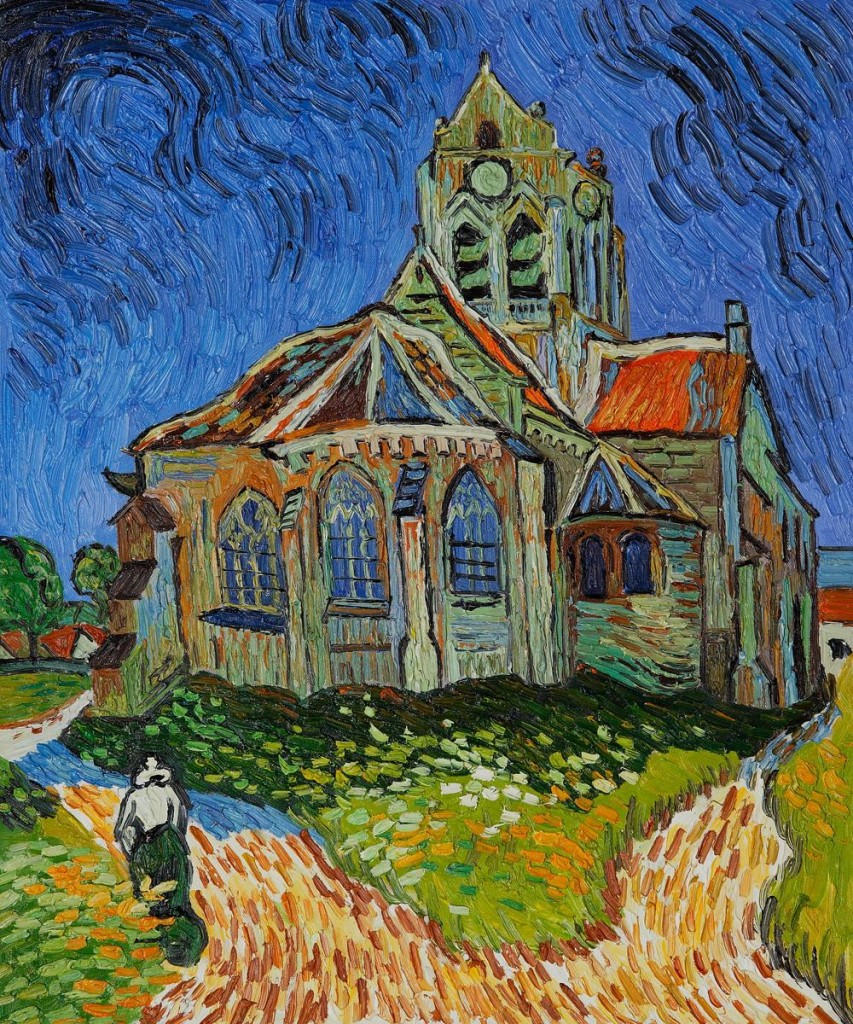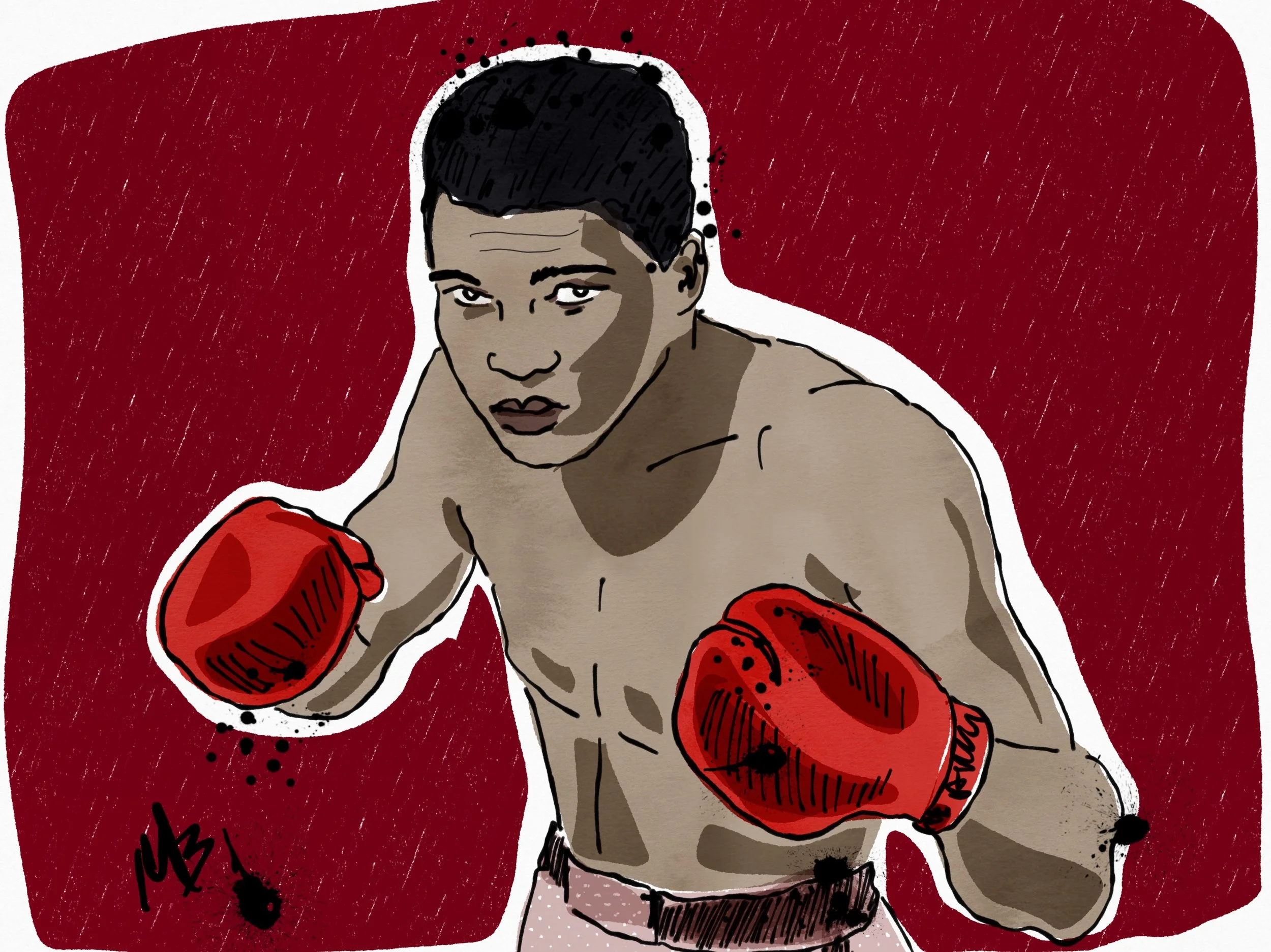There are days where you feel like you’re getting hit from the outside & inside. On those days you feel drained and it’s hard to fight. It feels like your weakness have been exposed and exploited. Those days the voices taunt louder. The weight of the journey is felt more acutely. And there’s no bow to tie up nicely. Today, is one of those days. | art inspired by Muhammad Ali @muhammadali . Keep fighting. #art #fight #boxing #muhammadali #struggle #artist #njartist #digitalart #illustration #illustrator #illustratorsofinstagram #illustrationoftheday #dailydrawing #boxinggloves #mikebone #mikebrennanart #artgallery #gallery #journey #artwork #fitness #artistic #artsy #artlife #sports #emotions #feelings
Did the Church Fail Van Gogh?
 I've been on a Van Gogh journey for a little over a year now. I realize that as an artist, it's almost cliche to like him. Some might scoff, he's not "indie" enough to like. But I really do appreciate not only his work, but more recently, exploring his story. I have watched several films about his life (most not very good BTW, but I did like Lust for LIfe starring Kirk Douglas & Leonard Nimoy's one man show of Vincent). I have also started reading his biography Van Gogh: The Life (but truth be told I'm finding it a little dense reading).
I've been on a Van Gogh journey for a little over a year now. I realize that as an artist, it's almost cliche to like him. Some might scoff, he's not "indie" enough to like. But I really do appreciate not only his work, but more recently, exploring his story. I have watched several films about his life (most not very good BTW, but I did like Lust for LIfe starring Kirk Douglas & Leonard Nimoy's one man show of Vincent). I have also started reading his biography Van Gogh: The Life (but truth be told I'm finding it a little dense reading).
Something I never heard about Van Gogh in my Art school years was that he was actually in the ministry. As an Artist and Christ follower, my faith has always been an integral part of my work (not always in theme but sometimes in attitude and work ethic). So this particular part of Van Gogh's story was intriguing to me. (Not to mention that I used to hold a pastoral position myself.)
Van Gogh... taught in a Methodist boys' school, and also preached to the congregation. Although raised in a religious family, it wasn't until this time that he seriously began to consider devoting his life to the church. Hoping to become a minister, he prepared to take the entrance exam to the School of Theology in Amsterdam. After a year of studying diligently, he refused to take the Latin exams, calling Latin a "dead language" of poor people, and was subsequently denied entrance. The same thing happened at the Church of Belgium: In the winter of 1878, van Gogh volunteered to move to an impoverished coal mine in the south of Belgium, a place where preachers were usually sent as punishment. He preached and ministered to the sick, and also drew pictures of the miners and their families, who called him "Christ of the Coal Mines." The evangelical committees were not as pleased. They disagreed with van Gogh's lifestyle, which had begun to take on a tone of martyrdom. They refused to renew van Gogh's contract, and he was forced to find another occupation.
Van Gogh's relationship with the Church was rocky for sure. He was a rebel. Stubborn. He didn't play by the rules. The life he wanted to lead didn't match the code the Church demanded for him. Did you catch this: The evangelical committees were not as pleased. (Ah, yes the "Committees".) So, they fired him.
Did the Church fail Van Gogh or did Van Gogh fail the Church? Perhaps both. Van Gogh's life and story is fraught with strife and struggle. He was far from perfect. But the same goes for the Church. It's very complicated and I don't mean to skim surface issues to reach my own conclusions, but it made me wonder what would have happened if Van Gogh never left ministry. Would the world ever know his name or his art?
Van Gogh's life and story prompts me to consider a few things further: What can Artists who are Christians learn from his story and interaction with the Church? What can the Church learn about Artists and how to help them find their place in the Church?

